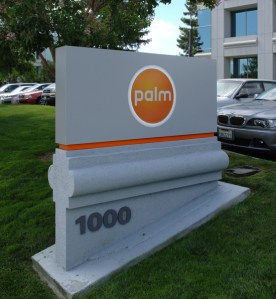 Palm, your bail has arrived. After attempting to rejuvenate its flagging smartphone business with the Pre and Pixi, suffering below-expected sales numbers, plummeting stock prices and ultimately going up for sale, Palm has finally found a suitor: Hewlett Packard.
Palm, your bail has arrived. After attempting to rejuvenate its flagging smartphone business with the Pre and Pixi, suffering below-expected sales numbers, plummeting stock prices and ultimately going up for sale, Palm has finally found a suitor: Hewlett Packard.
The 71-year-old company announced Wednesday afternoon that it would acquire Palm for $5.70 per share, or $1.2 billion. The transaction has already passed the muster of both companies’ board of directors.
The acquisition should provide a massive shot of adrenaline for HP’s lethargic smartphone business, which has slipped into obscurity after years of stagnant product development. At present, it consists of a gaggle of iPAQ-branded Windows Mobile devices. According to HP’s press release, it will adopt the glittering gem of its recent acquisition – Palm’s webOS – in future smartphone offerings.
“Palm’s innovative operating system provides an ideal platform to expand HP’s mobility strategy and create a unique HP experience spanning multiple mobile connected devices,” said Todd Bradley, executive vice president of HP’s Personal Systems Group, in a statement. “Advances in mobility are offering significant opportunities, and HP intends to be a leader in this market.”
As for the fate of Palm’s Steve Jobs-esque frontman and the father of webOS, Jon Rubinstein, he’s expected to remain with HP to nurture his baby through the transition process.
The deal is still subject to regulatory approval, but should close during HP’s third fiscal quarter, which ends July 31.


